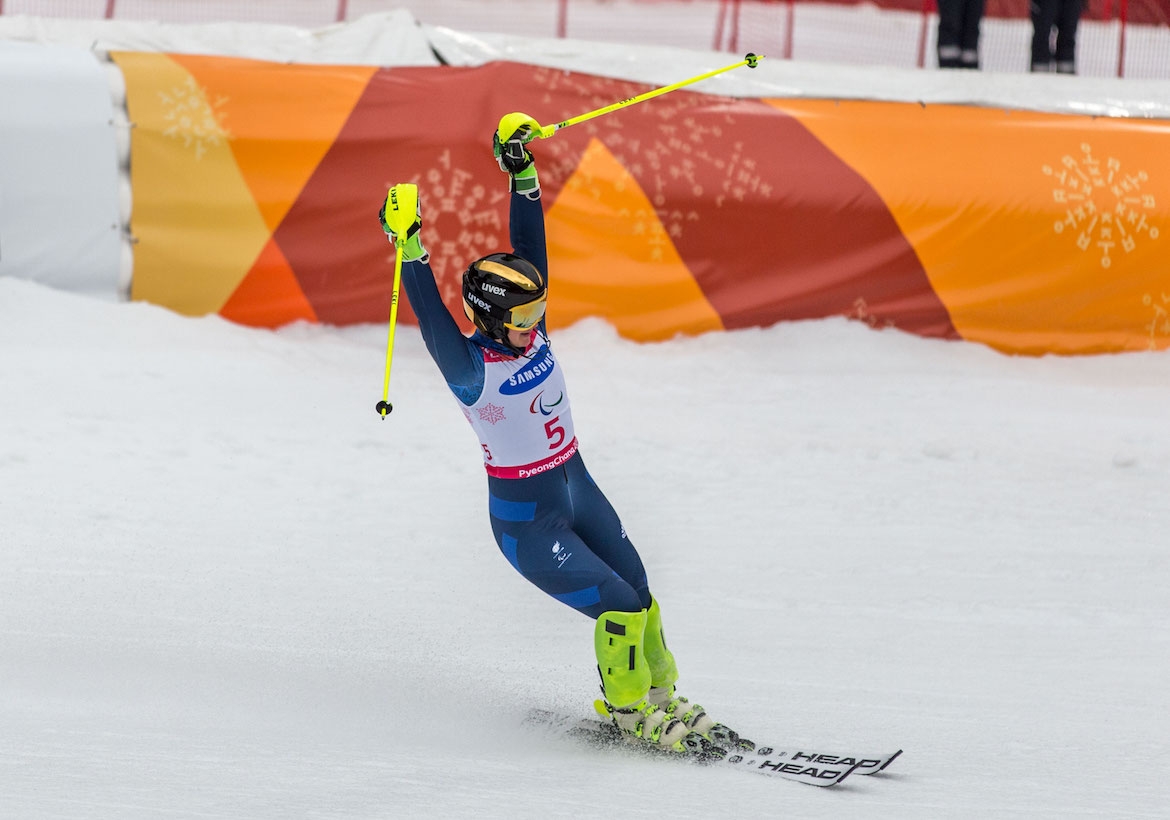The 19-year-olds and their guides hurtled towards one gold, four silver and two bronze medals between them.
It meant Team GB reached their target by their incredible efforts alone.
Menna, a World Championship bronze medallist, picked up gold on the final day of the Games in the slalom, adding to two silvers and a bronze.
Downhill world champion Millie collected two silvers and a bronze.
“We wanted to show what we are capable of,” says Menna. “I am so proud of what we did out there.”
Menna was born with congenital retinal folds, and has no vision in her left eye and limited vision in her right eye. She learned to ski at the age of five, following her dad on the slopes on family holidays. She is now the team’s most decorated Paralympian.
Millie, who lost most of her vision as a child because of roundworm parasite, started skiing when she was six. Less than a decade later she became the youngest person to compete in the 2014 Olympics at the age of just 15.
She sustained major injuries in a ski accident in March, putting her out of action for several months. Despite that she was crowned World Cup Downhill Champion for the season.
They are instructed on the slopes by their sighted guides, Jen Kehoe and Brett Wild, who wear bright orange bibs and use Bluetooth headsets to tell them about turns, bumps and troughs.
Millie explains: “Brett will say whatever he sees in front of him – all the important things that he needs to tell me – and then I will say back to him our distance, whether we’re too close, too far, whether we’re going too slowly, too quickly. All of that happens in a fraction of a second.
“People always ask me if it is scary, but it isn’t. I don’t really see all the hazards that are on the slope.”
Menna says her relationship with guide Jen relies on “trust and transparency”.
Jen adds: “I’d say having a natural connection, trust and communication makes us a good team. When you get to the bottom, especially if it’s a really complicated course, relief is the first thing on my mind and then just elation. It’s fun. You’ve worked as hard as you both can and hopefully that has translated into a really good time and performance.”
The athletes are now counting down to the Beijing Winter Olympics in 2022. During her busy training regime, Menna managed to squeeze in a trip to the Palace to collect an MBE along with guide Jen.
Talking of the honour, she says she hopes it will lift Paralympic sports in the eyes of the world.
“The main reason I’m excited is for the sport – Paralympic sport is growing and it will only get bigger if we get recognition of what we do, just the same as the able-bodied athletes.”

